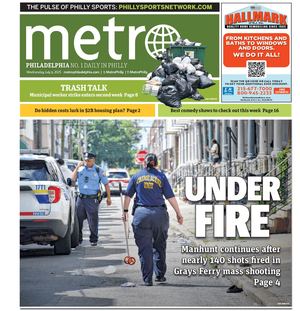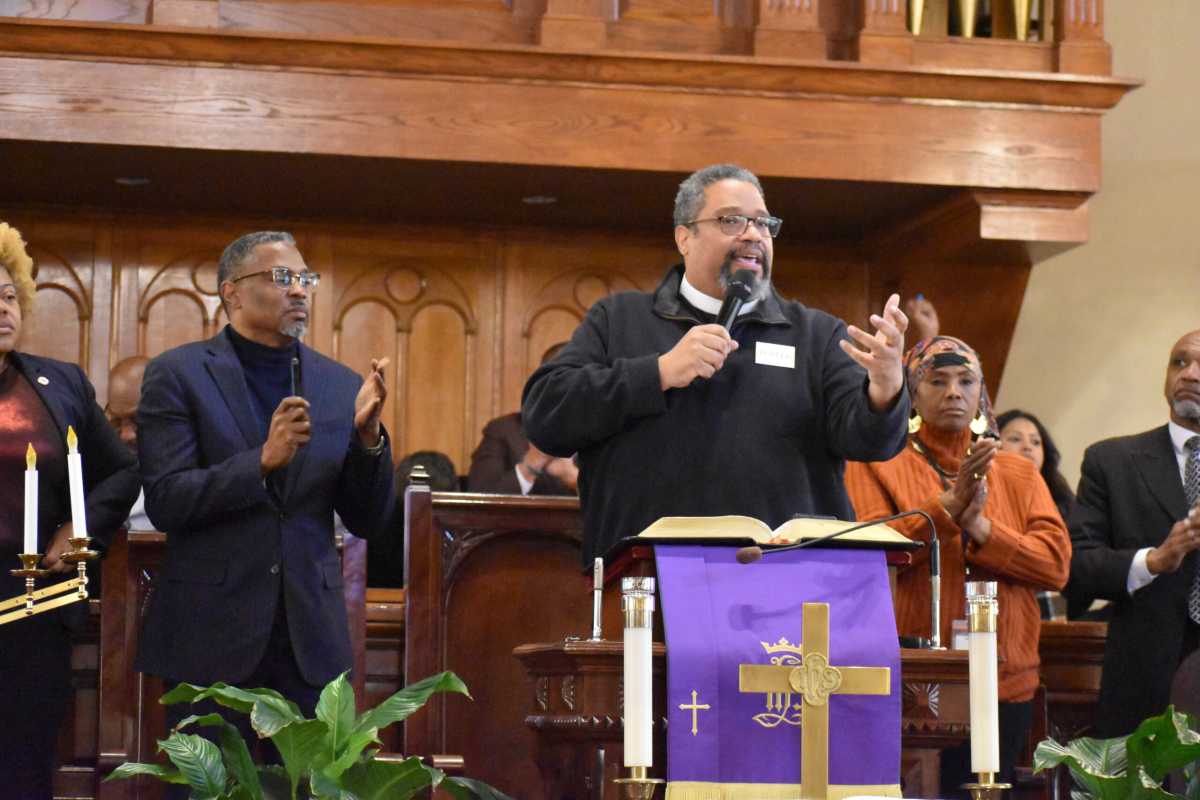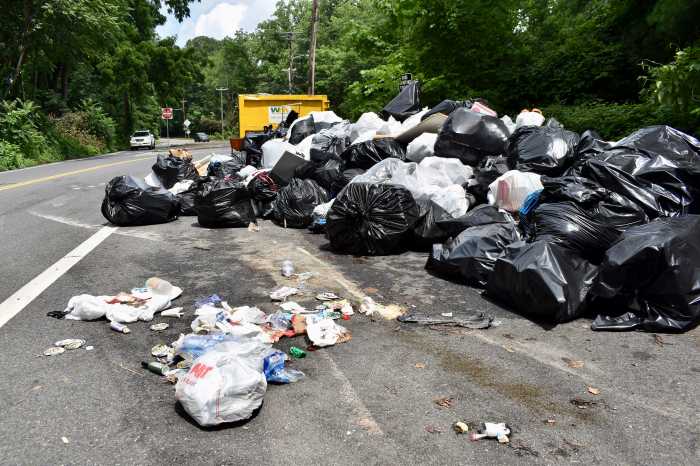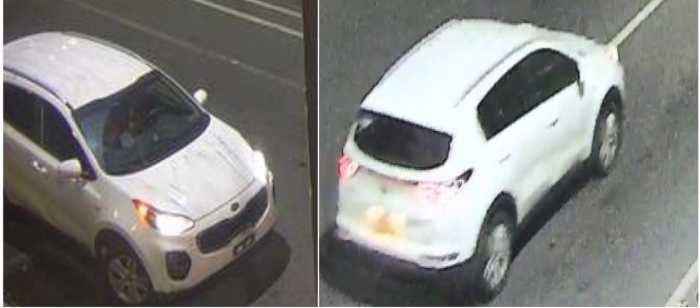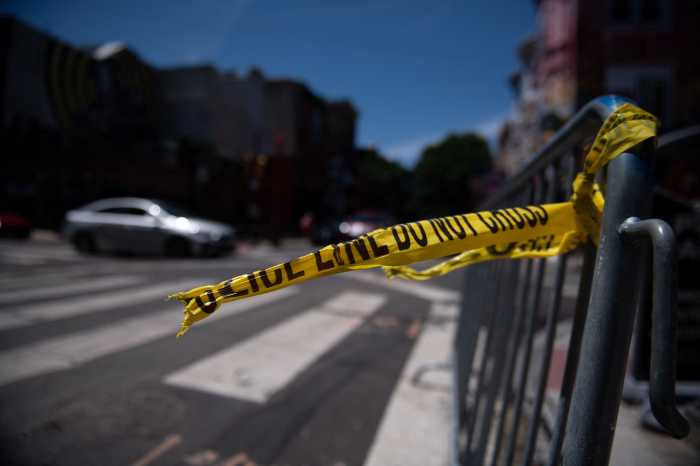A group that includes members of the clergy, civil rights leaders and others has formed a coalition to oppose Act 40, a law passed in 2023 that established a special prosecutor to combat crime on SEPTA.
The Coalition to Defend Democracy believes the statue strips power from progressive District Attorney Larry Krasner, thereby diminishing the voting rights of the Philadelphians, particularly Black and brown residents, who elected him.
“They are dehumanizing us and basically saying to us: You are animals who can’t make decisions for yourself,” Bishop Dwayne Royster, of POWER Interfaith, said at a news conference Tuesday at Mother Bethel AME Church. “We, the good white folk, have to come along and make decisions for you.”
Organizers of the coalition attacked Wayne Langerholc, the GOP state senator from western Pennsylvania who was the prime sponsor of Act 40, and they also had pointed remarks for Democratic Gov. Josh Shapiro, who signed it into law in December.
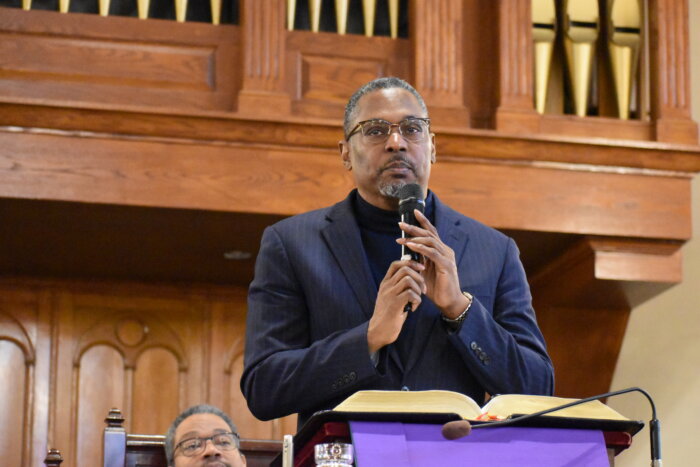
“Governor Shapiro, you got a choice. Whose side are you going to be on?” said the Rev. Greg Holston, a senior advisor to Krasner. “Most of the people up here have supported you. Most of the people up here have worked for you. Most of the people up here have knocked on doors to get you elected.”
The governor’s office did not respond to a request for comment Tuesday. In a February interview with NBC10, Shapiro said Act 40 was part of a “broad bipartisan agreement” between Democrats and Republicans in Harrisburg before the end of the term.
“We’re not taking away power. We are adding law enforcement resources,” he told the station. “It’s concurrent jurisdiction, something that already exists in our laws.”
The bill instructs Attorney General Michelle Henry to appoint a special prosecutor who would have the first opportunity to pursue criminal cases on or near SEPTA property within city limits.
The prosecutor’s jurisdiction is not specifically detailed in the legislation, though opponents have interpreted it as within 500 yards of public transit stations, stops and other property, which would cover a wide swath of the city. Philadelphia’s municipal government is required to reimburse the AG’s Office for any expenses, including the prosecutor’s salary.
Henry has not yet hired someone for the position. A spokesperson for her office said the job remains posted.
Krasner has filed a lawsuit asking the Commonwealth Court to block the hiring of a special prosecutor and rule the law unconstitutional. An oral argument session in the case is scheduled for April 4.
Langerholc has said Act 40 adds “an additional layer of safety analogous to a special task force on crime” and does not infringe on Krasner’s jurisdiction.
Voters elected Krasner twice – first in 2017 and again three years ago – because they supported his ideas about reforming the criminal justice system and reducing mass incarceration, members of the new coalition said.
Some suggested that Langerholc and other lawmakers from outside the city depend on incarcerating Philadelphians to boost the economy in their local counties through employment at state prisons.
“This is a ridiculous law, and I want to go further,” state Sen. Sharif Street said at the news conference. “There are folks, many of whom supported this bill, who want prisons to be filled.”
Coalition leaders also spoke about the need to protect the vote ahead of November’s presidential election – likely a rematch between President Joe Biden and former President Donald Trump.
“If you can not defend our democratic rights from undemocratic forces in the state legislature, how will you defend it if that threat is coming from Washington, D.C., in 2024?,” said Robert Saleem Holbrook, executive director of the Abolitionist Law Center.
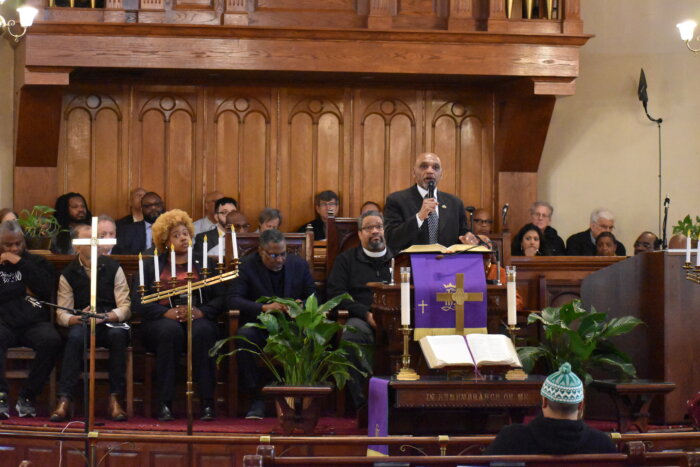
SEPTA, for its part, filed a brief Friday in the Commonwealth Court case asking for Krasner’s lawsuit to be dismissed. Transit Police Chief Charles Lawson last week vowed to implement “aggressive” enforcement on the system following a series of shootings aboard buses and near stops.
Holston said the District Attorney’s Office has prosecuted 92% of the people arrested on SEPTA property.
“If you want to do something about safety, pass some gun laws that restrict access to guns to kids who are 14 and 15 years of age,” he told Metro. “There are many things that have worked to reduce gun violence, and, in fact, some of those things are reducing gun violence now in the city of Philadelphia, even though you’re seeing these violent acts on SEPTA.”
So far this year, the number of shooting victims is down 36% compared to the same date in 2023, according to Philadelphia Police Department Data.
Other organizations involved in the Coalition to Defend Democracy include SEIU, the NAACP Philadelphia Branch, the Working Families Party, the Urban League of Philadelphia and Frontline Dads. The group is planning a rally against Act 40 on April 4, the same day as the court hearing.
